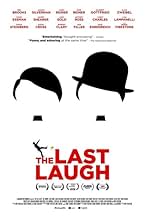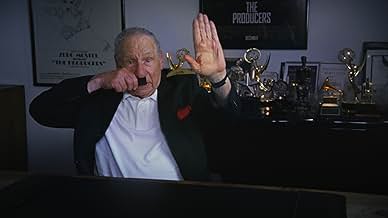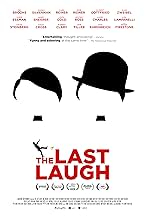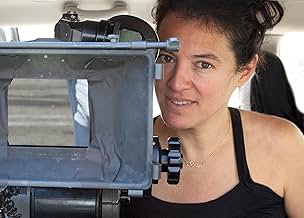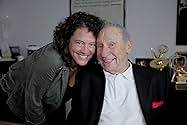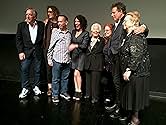World-famous comedians including Mel Brooks, Sarah Silverman, and Gilbert Gottfried pitch in with their own views on the boundaries of comedy.World-famous comedians including Mel Brooks, Sarah Silverman, and Gilbert Gottfried pitch in with their own views on the boundaries of comedy.World-famous comedians including Mel Brooks, Sarah Silverman, and Gilbert Gottfried pitch in with their own views on the boundaries of comedy.
- Director
- Writers
- All cast & crew
- Production, box office & more at IMDbPro
Storyline
Did you know
- Quotes
Sarah Silverman: Oh my God. That's awful and hilarious. It's awful hilarious.
- Crazy creditsIn the end credits, there's footage of people telling Holocaust jokes.
- ConnectionsFeatures The Great Dictator (1940)
- SoundtracksIt's Now or Never
Written by Wally Gold, Aaron Schröder (as Aaron Schroeder), Eduardo Di Capua (as Eduardo di Capua)
Performed by Elvis Presley
Courtesy of RCA Records
By arrangement with Sony Music Licensing
Featured review
Greetings again from the darkness. The best comedy often touches a nerve. Jokes can make us feel uncomfortable and even a bit embarrassed for laughing. Although the best comedians are traditionally those who attack the politically correct world we live in, there are certain topics that remain taboo even to the bravest comedians: child molesting, rape, AIDS, 9/11, and the Holocaust. Director Ferne Pearlstein examines the issue of taboo comedy through numerous interviews with some well known and successful comedians, authors, and even Holocaust survivors.
Much of the focus here is on the Holocaust, and some of the familiar faces providing insight include Mel Brooks, Sarah Silverman, Gilbert Gottfried, and Rob and Carl Reiner. We learn the most important rule is never tell a crappy joke about a dark subject – it better be really funny! We also learn that while the Holocaust is mostly off-limits, the Nazi's are fair game. Bugs Bunny, Charlie Chaplin, The Three Stooges, and The Marx Brothers have all mined the Nazi world for the sake of comedy and satire, though maybe none have done so as frequently or successfully as Mel Brooks ("Springtime for Hitler")
One of the most interesting recurring threads of the film involves Auschwitz survivor Renee Firehouse. North of 90 years old, this remarkable lady is extremely sharp and understands the importance of laughter while also never being shy about what she thinks is NOT funny. Ms. Firestone even meets up with the effervescent Robert Clary, a fellow Holocaust survivor, and known to many as LeBeau on the TV show "Hogan's Heroes".
A trip to the Holocaust Survivor Convention on the Las Vegas strip offers up more thoughts on the role comedy played in keeping these folks alive. We see rare footage of carefully staged Cabaret acts from within the concentration camps who even knew this went on? The recently re-discovered footage of Jerry Lewis' "The Day the Clown Cried" is also shown, and the commentary from Harry Shearer makes it clear that the rest should never find an audience.
Authors Etgar Keret, Shalom Auslander and Abraham Foxman each provide their thoughts on forbidden comedic topics, and clips are shown from "Curb Your Enthusiasm" and Brooks' "The Producers", as well as scandalous moments from Louis CK, Joan Rivers, Chris Rock, and the most censured comic of all, Lenny Bruce. Laughter may be the best medicine, but sometimes it's interesting to take a step back and determine exactly what is off-limits. When has a joke gone too far? It appears from Ms. Pearlstein's project that the line in the sand is determined by personal taste, preference and judgment.
Much of the focus here is on the Holocaust, and some of the familiar faces providing insight include Mel Brooks, Sarah Silverman, Gilbert Gottfried, and Rob and Carl Reiner. We learn the most important rule is never tell a crappy joke about a dark subject – it better be really funny! We also learn that while the Holocaust is mostly off-limits, the Nazi's are fair game. Bugs Bunny, Charlie Chaplin, The Three Stooges, and The Marx Brothers have all mined the Nazi world for the sake of comedy and satire, though maybe none have done so as frequently or successfully as Mel Brooks ("Springtime for Hitler")
One of the most interesting recurring threads of the film involves Auschwitz survivor Renee Firehouse. North of 90 years old, this remarkable lady is extremely sharp and understands the importance of laughter while also never being shy about what she thinks is NOT funny. Ms. Firestone even meets up with the effervescent Robert Clary, a fellow Holocaust survivor, and known to many as LeBeau on the TV show "Hogan's Heroes".
A trip to the Holocaust Survivor Convention on the Las Vegas strip offers up more thoughts on the role comedy played in keeping these folks alive. We see rare footage of carefully staged Cabaret acts from within the concentration camps who even knew this went on? The recently re-discovered footage of Jerry Lewis' "The Day the Clown Cried" is also shown, and the commentary from Harry Shearer makes it clear that the rest should never find an audience.
Authors Etgar Keret, Shalom Auslander and Abraham Foxman each provide their thoughts on forbidden comedic topics, and clips are shown from "Curb Your Enthusiasm" and Brooks' "The Producers", as well as scandalous moments from Louis CK, Joan Rivers, Chris Rock, and the most censured comic of all, Lenny Bruce. Laughter may be the best medicine, but sometimes it's interesting to take a step back and determine exactly what is off-limits. When has a joke gone too far? It appears from Ms. Pearlstein's project that the line in the sand is determined by personal taste, preference and judgment.
- ferguson-6
- Mar 1, 2017
- Permalink
Details
- Runtime1 hour 28 minutes
- Color
- Aspect ratio
- 1.78 : 1
Contribute to this page
Suggest an edit or add missing content





